#utopianism
Text
“Civilization is a social plague on the planet, and vices are just as necessary to it as is a virus to disease...We must, then, apply the principle of Doubt to Civilization; we must doubt its necessity, its excellence, and its permanence.”
- Charles Fourier
#philosophy#french philosophy#utopian socialism#utopianism#fourierism#quotes#philosophical quotes#charles fourier
102 notes
·
View notes
Text
"To act on the belief that we possess the knowledge and the power which enable us to shape the processes of society entirely to our liking, knowledge which in fact we do not possess, is likely to make us do much harm."
Friedrich Hayek (1899-1992) Austrian economist.
57 notes
·
View notes
Text
“Like everything based on the writings of Karl Marx—seeing oppressors and colonial struggles everywhere—DEI was doomed to fail. The uniformity of thought known as intersectionality, fostered by DEI, meant all oppressed people must support all others who are oppressed. But that idea burst on Oct. 7 when Hamas raped, murdered and kidnapped Israelis. Many liberals, especially Jewish ones, couldn’t support genocidal “colonized” terrorists. Pop! The long march is in retreat.
By the way, ESG, or investing based on “environmental, social and governance” principles, peaked last June, when BlackRock CEO Larry Fink said he would stop using “the word ESG anymore, because it’s been entirely weaponized.” Never mind that performance of ESG funds has been sketchy and that BlackRock had been adding the label “sustainable” or “ESG” to funds and charging up to five times as much. Then a study published in December by Boston University’s Andrew Kingfound “no reliable evidence for the proposed link between sustainability and financial performance.” Pop!
Most offensive to me was DEI’s devious underlying agenda: societal design. 𝐁𝐥𝐢𝐧𝐝𝐞𝐝 𝐛𝐲 𝐟𝐚𝐧𝐚𝐭𝐢𝐜𝐚𝐥 𝐝𝐞𝐯𝐨𝐭𝐢𝐨𝐧, 𝐚𝐜𝐭𝐢𝐯𝐢𝐬𝐭𝐬 𝐰𝐞𝐫𝐞 𝐩𝐚𝐰𝐧𝐬 𝐟𝐨𝐫 𝐭𝐡𝐞 𝐜𝐚𝐮𝐬𝐞 𝐨𝐟 𝐫𝐞𝐬𝐡𝐚𝐩𝐢𝐧𝐠 𝐭𝐡𝐞 𝐰𝐨𝐫𝐥𝐝 𝐢𝐧𝐭𝐨 𝐚 𝐜𝐨𝐥𝐥𝐞𝐜𝐭𝐢𝐯𝐞 𝐮𝐭𝐨𝐩𝐢𝐚 𝐭𝐨 𝐛𝐞 𝐫𝐮𝐧, 𝐨𝐟 𝐜𝐨𝐮𝐫𝐬𝐞, 𝐛𝐲 𝐩𝐫𝐨𝐠𝐫𝐞𝐬𝐬𝐢𝐯𝐞, 𝐬𝐞𝐥𝐟-𝐢𝐝𝐞𝐧𝐭𝐢𝐟𝐲𝐢𝐧𝐠 𝐞𝐥𝐢𝐭𝐞𝐬. That was the “my truth” that Ms. Gay invoked on her exit. Critical theories and Marxist techniques would take power from you and me, using big government as the enforcer.
The new societal design, embedded in DEI and ESG, envisioned idyllic communal progress. 𝐇𝐢𝐬𝐭𝐨𝐫𝐲 𝐬𝐡𝐨𝐰𝐬 𝐭𝐡𝐢𝐬 𝐧𝐞𝐯𝐞𝐫 𝐰𝐨𝐫𝐤𝐬 𝐛𝐞𝐜𝐚𝐮𝐬𝐞 𝐩𝐨𝐰𝐞𝐫 𝐜𝐨𝐫𝐫𝐮𝐩𝐭𝐬. Diversity meant ideological conformity. Equity meant discrimination. Inclusion meant blurring the sexes. Men winning women’s athletic events would be considered normal. It was all theatrics, like the tampons I’ve seen in men’s bathrooms on Ivy League campuses. Somewhere George Orwell is rolling on the floor laughing.
One goal of progressive societal design is to shrink—depopulation. Twenty-somethings now question having children. Net zero and degrowth, both World Economic Forum approved, are pushed via energy myths: carbon bad, cows bad. A plant-based chicken in every pot and two electric cars in every garage. They envy the merit-touting rich, shout “inequality” and wear “Tax the Rich” dresses. They tear down statues to erase history. How did we let this happen?
𝐖𝐡𝐢𝐥𝐞 𝐌𝐚𝐫𝐱𝐢𝐬𝐦 𝐢𝐬 𝐚 𝐦𝐞𝐚𝐧𝐬 𝐨𝐟 𝐠𝐚𝐢𝐧𝐢𝐧𝐠 𝐩𝐨𝐰𝐞𝐫 𝐭𝐨 𝐢𝐦𝐩𝐥𝐞𝐦𝐞𝐧𝐭 𝐬𝐨𝐜𝐢𝐞𝐭𝐚𝐥 𝐝𝐞𝐬𝐢𝐠𝐧, 𝐢𝐭 𝐪𝐮𝐢𝐜𝐤𝐥𝐲 𝐭𝐮𝐫𝐧𝐬 𝐚𝐮𝐭𝐡𝐨𝐫𝐢𝐭𝐚𝐫𝐢𝐚𝐧. There was very little free speech at Harvard—the Foundation for Individual Rights and Expression ranked it last of all colleges last year. Those against the societal-design agenda were shouted down. Dissent was met with accusations of privilege or cancellation. Conform or be cast out. On a larger scale, the Biden administration co-opted social media to censure opposing views.
I, like most Americans, am for diversity, but not when it’s forced or mandated. In a 2017 interview, Mr. Fink admitted BlackRock would use DEI tactics to “force behaviors” of corporations on “gender or race,” including via management compensation. Now that’s power.
𝐓𝐡𝐢𝐬 𝐩𝐨𝐰𝐞𝐫 𝐢𝐧𝐞𝐯𝐢𝐭𝐚𝐛𝐥𝐲 𝐥𝐞𝐚𝐝𝐬 𝐭𝐨 𝐚 𝐦𝐚𝐫𝐜𝐡 𝐨𝐟 𝐢𝐧𝐭𝐞𝐥𝐥𝐞𝐜𝐭𝐮𝐚𝐥 𝐜𝐨𝐫𝐫𝐮𝐩𝐭𝐢𝐨𝐧 𝐭𝐡𝐫𝐨𝐮𝐠𝐡 𝐢𝐧𝐬𝐭𝐢𝐭𝐮𝐭𝐢𝐨𝐧𝐬, 𝐰𝐡𝐢𝐜𝐡 𝐰𝐞’𝐯𝐞 𝐬𝐞𝐞𝐧 𝐚𝐭 𝐇𝐚𝐫𝐯𝐚𝐫𝐝, 𝐭𝐡𝐞 𝐁𝐢𝐝𝐞𝐧 𝐚𝐝𝐦𝐢𝐧𝐢𝐬𝐭𝐫𝐚𝐭𝐢𝐨𝐧 𝐚𝐧𝐝 𝐞𝐥𝐬𝐞𝐰𝐡𝐞𝐫𝐞. Does national security adviser Jake Sullivan really care about equity or climate change? It polled well and put him back in power to implement his own societal design via “industrial strategy.”
𝐓𝐡𝐞 𝐠𝐨𝐨𝐝 𝐧𝐞𝐰𝐬 𝐢𝐬 𝐭𝐡𝐚𝐭 𝐞𝐜𝐨𝐧𝐨𝐦𝐢𝐜𝐬 𝐞𝐯𝐞𝐧𝐭𝐮𝐚𝐥𝐥𝐲 𝐨𝐮𝐭𝐥𝐚𝐬𝐭𝐬 𝐭𝐡𝐞 𝐜𝐨𝐧𝐭𝐫𝐨𝐥 𝐟𝐫𝐞𝐚𝐤𝐬. 𝐂𝐞𝐧𝐭𝐫𝐚𝐥 𝐩𝐥𝐚𝐧𝐧𝐢𝐧𝐠 𝐥𝐨𝐬𝐞𝐬. 𝐑𝐞𝐚𝐥 𝐥𝐢𝐟𝐞 𝐢𝐬 𝐚𝐛𝐨𝐮𝐭 𝐦𝐚𝐫𝐤𝐞𝐭𝐬 𝐭𝐡𝐚𝐭 𝐞𝐯𝐞𝐫𝐲 𝐝𝐚𝐲 𝐭𝐫𝐚𝐧𝐬𝐦𝐢𝐭 𝐭𝐫𝐢𝐥𝐥𝐢𝐨𝐧𝐬 𝐨𝐟 𝐩𝐫𝐢𝐜𝐞 𝐬𝐢𝐠𝐧𝐚𝐥𝐬 𝐨𝐟 𝐡𝐮𝐦𝐚𝐧 𝐝𝐞𝐬𝐢𝐫𝐞𝐬. Those prices inform production much better than any government bureaucrat or Harvard professor. Societal design—remember Lyndon B. Johnson’s Great Society?—requires government control. I’ll take freedom.
Preferred pronouns are fading. College admissions, and maybe hiring, based on race is illegal. DEI departments are being deconstructed. But while the DEI movement may have peaked, like that Monty Python character, it’s not dead yet. 𝐓𝐡𝐞 𝐟𝐞𝐯𝐞𝐫𝐢𝐬𝐡 𝐰𝐡𝐢𝐧𝐢𝐧𝐠 𝐨𝐟 𝐭𝐡𝐨𝐬𝐞 𝐠𝐫𝐚𝐬𝐩𝐢𝐧𝐠 𝐟𝐨𝐫 𝐭𝐡𝐞 𝐥𝐚𝐬𝐭 𝐫𝐞𝐢𝐧𝐬 𝐨𝐟 𝐩𝐨𝐰𝐞𝐫 𝐰𝐢𝐥𝐥 𝐩𝐫𝐨𝐛𝐚𝐛𝐥𝐲 𝐠𝐞𝐭 𝐰𝐨𝐫𝐬𝐞 𝐛𝐞𝐟𝐨𝐫𝐞 𝐃𝐄𝐈 𝐞𝐯𝐞𝐧𝐭𝐮𝐚𝐥𝐥𝐲 𝐝𝐢𝐞𝐬 𝐰𝐢𝐭𝐡 𝐚 𝐰𝐡𝐢𝐦𝐩𝐞𝐫.”
— Andy Kessler//WSJ
#wsj#thank god#dei must die#regressive ideology#luxury beliefs#striver class parroting of fashionable ideas that never work for working class and poor people#plantationeering 2.0#pseudo white guilt religion#society#Utopianism#elitism#Orwellian#Cadillac communism#equality NOT equity#reality wins#human nature#control#social engineering#emotionalism#wef#world economic forum#Andy Kessler#wall streeet journal#Marxism#apparatchiks#racism in virtuous looking clothing#pseudointellectualism#dehumanizing socially regressive mindfuck#diversity equity and inclusion#dei
23 notes
·
View notes
Text

7 notes
·
View notes
Text

@moms4liberty is what happens when a customer complaint makes a wish upon a burning cross to become a political movement and starts wanting to speak with all the managers.
[The Daily Don]
* * * *
"Totalitarianism is not only hell, but all the dream of paradise - the age-old dream of a world where everybody would live in harmony, united by a single common will and faith, without secrets from one another. Andre Breton, too, dreamed of this paradise when he talked about the glass house in which he longed to live. If totalitarianism did not exploit these archetypes, which are deep inside us all and rooted deep in all religions, it could never attract so many people, especially during the early phases of its existence.
Once the dream of paradise starts to turn into reality, however, here and there people begin to crop up who stand in its way. and so the rulers of paradise must build a little gulag on the side of Eden. In the course of time this gulag grows ever bigger and more perfect, while the adjoining paradise gets even smaller and poorer."
- Milan Kundera
The Book of Laughter and Forgetting
[thanks to whiskey river]
#Daily Don#Moms for Liberty#Jesse Duquette#whiskeyriver#Milan Kundera#The book of laughter and forgetting#tortalitarianism#utopianism
32 notes
·
View notes
Text

Absolute and willful ignorance of history is necessary to believe in such things.
7 notes
·
View notes
Text





Utopian Virtual
#utopia#utopianism#utopian virtual#utopian scholastic#virtual photography#virtual reality#virtual#SoundCloud
5 notes
·
View notes
Text
bro wanted a utopian society forgetting that people have conflicting ideas of what a utopia is smh
#out of the crooked timber of humanity nothing entirely strait can be built#utopia#distopia#utopianism#kantianism#immanuel kant#philosophy#ethics#categorical imperative#196
14 notes
·
View notes
Text



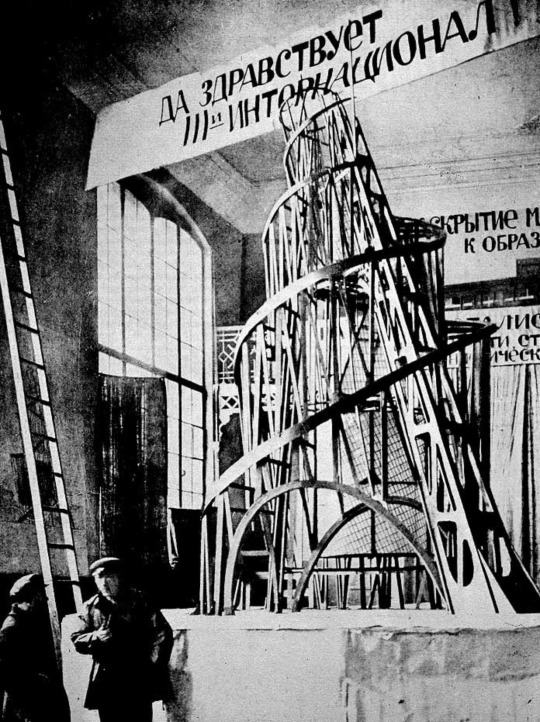



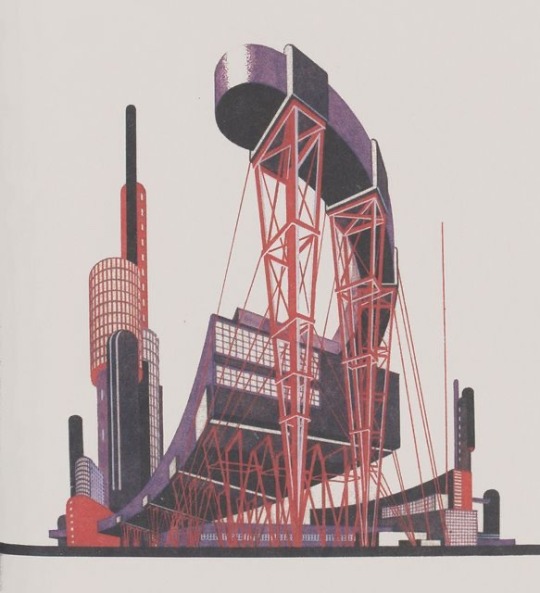

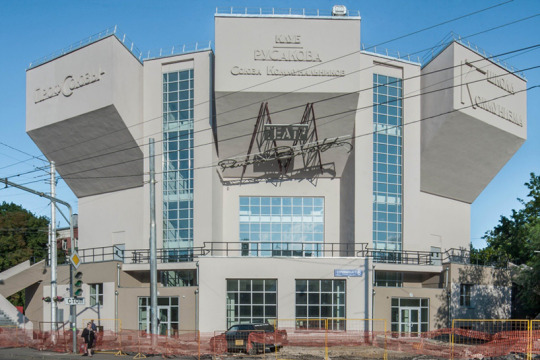
The brief period of constructivist architecture in the USSR before Stalin’s aesthetic conservatism gave it the boot ruled. Such great examples of hope communicated through space, a socialist utopianism which sought to liberate beyond the economic. The world had been irrevocably changed, why should the buildings not as well? The cubist shattering of lines and exposed joints speak to a remaking of the world after a liberatory apocalypse. If the everyday man is liberated, the everyday should feel as such. Novel spaces for novel sociality yet unrealized. Every day would be avant-garde. What if your bus stop felt liberating?
35 notes
·
View notes
Note
Are you an anticapitalist? you are good either way just curious
No, I'm not.
It's not a perfect system, but one need only look at indexes like the Global Freedom Index and the Human Development Index and observe which countries are at the top and which are not. One need only look at the correlation between economic growth and the decline of illiteracy, decline of child mortality, decline of reproductive burden on women, lower hunger, higher education, higher life satisfaction, and many other things.
An imperfect liberal system is still better than a perfect illiberal system.
“Beware the cult that sells you a utopia, because any dictatorial action can be justified by such a false vision.”
-- Rio Veradonir
Heaven is a utopian, perfect system. And what can you do there? Nothing. It's ruled over by a tyrant and nothing you do matters. It's perfect before you arrived, and it's no better (or worse) after you arrived. You can't change anything, you can't innovate, you can't make an impact. Something that is already "perfect" cannot be made more "perfect."
Just because something isn't perfect doesn't mean it can be improved. Free speech + the marketplace of ideas is not a perfect system that ensures truth and sanity always prevail, but attempts to "fix" it always make it worse.
No one screws things up more than utopians.
-- Colin Wright
Maintaining that "perfection" requires authoritarianism. We see this every single time. How else do you maintain a "perfect" system? How else do you protect that "perfect" system from imperfection? And what can't be justified in the name of maintaining that "perfection"? History has a bodycount of the horrors arising from attempts to enforce "perfect" systems. Yes, it has been tried. Many times.
So I'd much prefer an imperfect system that nobody controls than a perfect system enforced with an iron fist.
Philosophically, I'm not an anti-capitalist for the same reason I'm not anti-democratic or anti-science. I'll let Jonathan Rauch explain this.
Liberalism’s great contribution to civilization is the way it handles conflict. No other regime has enabled large and varied groups of people to set a social agenda without either stifling their members’ differences or letting conflict get out of hand. Bertrand Russell once said that “order without authority” might be taken as the motto both of political liberalism and of science. If you had to pick a three-word motto to define the liberal idea, “order without authority” would be pretty good. The liberal innovation was to set up society so as to mimic the greatest liberal system of them all, the evolution of life. Like evolutionary ecologies, liberal systems are centerless and self-regulating and allow no higher appeal than that of each to each in an open-ended, competitive public process (a game). Thus, a market game is an open-ended, decentralized process for allocating resources and legitimizing possession, a democracy game is an open-ended, decentralized process for legitimizing the use of force, and a science game is an open-ended, decentralized process for legitimizing belief. Much as creatures compete for food, so entrepreneurs compete for business, candidates for votes, and hypotheses for supporters. In biological evolution, no outcome is fixed or final—nor is it in capitalism, democracy, science. There is always another trade, another election, another hypothesis. In biological evolution, no species, however clever or complex, is spared the rigors of competition—nor are the participants in capitalism, democracy, science. No matter who you are, you must conduct your business in the currency of dollars, votes, or criticism—no special fiat, no personal authority.
[..]
Order emerging as each interreacts with each under rules which are the same for all (order without authority): just as that idea links the great liberal systems, so it also links the great liberal theorists. Darwin is known to have been strongly influenced by the economic ideas of Adam Smith. “The theory of natural selection,” writes Stephen Jay Gould, a paleontologist and historian of science, “is a creative transfer to biology of Adam Smith’s basic argument for a rational economy: the balance and order of nature does not arise from a higher, external (divine) control, or from the existence of laws operating directly upon the whole, but from struggle among individuals for their own benefits.
[..]
The disadvantages are serious, and must not be passed over lightly. First, the notion of empowering a vast, amorphous, unsupervised mass of voters and traders to make crucial social decisions defies all common sense and intuition. Instinct sides with Plato: it makes more sense to have the wisest man decide who gets what or who should rule. That is why learning democratic values and market values, which make the judgments of democratic and market systems “feel” right, takes centuries of cultural development and years of personal education; it is why people who are used to an authoritarian moral climate have such a hard time switching to the mechanisms of democracy and markets, and so often make a botch of it.
Second, open-ended, decentralized decision-making systems are perpetually unsettling. They cannot be counted on to reach any particular result, and often, since they put no one in particular in charge, they reach results which don’t particularly please anyone. The only constant is change, and change is unnerving and sometimes painful and wasteful. Leaders go in and out of power, sometimes too quickly to hold any course; markets shut factories and move jobs. No one can count on staying on top.
But the advantages of the two systems are enormous. They are flexible, which means that they adapt readily to change. They are broadly inclusive, and so make the most of human diversity. (Anyone can vote, anyone can own.) Yet by and large they are stable, despite being both flexible and broadly inclusive. And so they are liberal in this important sense: they allow us to be relatively free to be ourselves, each to make the contribution that suits him, with comparatively little risk of upending the whole system.
-- Jonathan Rauch, "Kindly Inquisitors"
In principle, if I've got a great idea, I could topple McDonald's or Microsoft or Amazon. You may scoff, but where are MySpace, Kodak, Blockbuster, Blackberry and whoever ended up with Palm? These were once some of the biggest organizations in the world. Look at the impact of Tesla. Any company is only as good as the last product or service they released, and past performance is no guarantee of success in the future. If you don't stay relevant, your business dies. Just as any political leader is only as good as their latest ballot, and any scientist is only as good as their latest ideas.
Evolution is behind the market game. At any point, you could be obsolete and at the wrong end of "survival of the fittest." After the rise and fall of all the purported "iPod killers," look who actually killed the iPod: Apple. It doesn't really exist any more, it's just the Music app on your phone.
People looking for a perfect system are looking for certainty. They want to know what the future will be, and more importantly, be able to control it to suit their preferences. They want to circumvent the rules of the game which apply to everyone (equality) and have the authority to decide - and enforce - what the result should really look like (equity). And they will decide what people really deserve.
But evolution has no certainty, as it's undirected. Changes to the environment are unpredictable. As soon as you try to direct evolution, you have an authority figure creating something that suits their own particular purposes, and the natural, erratic process of evolution has stopped. You now have creationism and the authoritarianism that goes along with it.
The beauty in these liberal systems is the same beauty in evolution itself: uncertainty. We need to get more comfortable with that.
One particular area where I'd argue the system is imperfect is where the evolutionary process has been short-circuited. Companies with questionable ethics put #BLM or a rainbow flag on their Twitter account for free, trot out a statement riddled with fashionable social shibboleths, and people look away from their business practices, tacitly deciding that they're comfortable with them by buying the next product, the next service, the next update.
Kind of like Passover, but with hashtags instead of lamb's blood. If you make the right offering, the Hand of God will pass by you and not look beyond the blood on the door.
We've already seen what can happen with consumer backlash. Netflix, Disney, Bud Light, Target. You don't have to agree with the basis for the reaction, but all bore the brunt of consumer dissatisfaction and paid the price. Some adjusted course, some doubled-down, some have committed to gaslighting the consumer, putting ideology above their core business.
The point, though, is this: what do you put up with as a consumer to have what you want? If you're discontent with a business' practices, then what have you done to force the pressure on them to adapt, to evolve? And why not?
Evolution requires pressures for survival.
To those who have a "smash capitalism" sticker, where did you put it? The bumper of your hybrid SUV? The case of your iPhone 14 Pro Max? The back lid of your ASUS Zenbook Flip?

Now imagine a world where this actually came to pass. Capitalism has been smashed. The means of production has become public, part of the government. The telecommunications companies, the tech companies, the automotive companies, the manufacturing companies are all no longer privately owned and in competition, but by the government. The same government which runs departments that function like the DMV, creates a Ministry of Truth, and which can't get a healthcare website to stay up.
The government doesn't need to compete against itself, so it doesn't need 5 mobile services. One will do just fine. There's no competition for customers who want faster speed, so 6G, which would have hit in 2030 is no longer a priority. Where is anyone going to go? 5G will be good enough for the next 30 years. The government's not a corporation, so it doesn't need to - and shouldn't - make a profit from its services.
It doesn't need to make a better, more feature packed phone next year, because it's not competing with anyone. It can just keep producing the same one for the next 10 years. And there's only one because who needs all those brands when they're all now under the government umbrella? Phase out Google Pixel, phase out the iPhone Pro/Max/Plus models that are status symbols of the aristocracy and bourgeoisie classes, and cut it back to one iPhone SE. Since the telecommunications and tech companies are now government entities, there's no longer any pushback to putting monitoring software on every phone the government makes in the operating system the government installs, on the network the government controls.
There's no longer a need for 10 different compact SUVs competing with each other, so it cuts this back to one. And some government bureaucrat who doesn't really understand cars doesn't see why you need an SUV anyway, since it's just a jacked-up hatchback, so a pen-stroke from somebody in a government office sees those go away in the name of efficiency. The factories can all produce the same design, not a multitude of different ones, because that's a bureaucratic headache.
The streaming companies are all no longer competing against each other, since they are all subsidiaries of the government now. So, why do we need so many shows in production? And why do they need to earn money anyway, other than to fund more productions and line the pockets of shareholders? And what sort of content do you think they're going to play now that the government has a monopoly?
I could keep going.
Now, where are the evolutionary pressures? Every sector now functions at the speed, efficiency and innovation level of the government (i.e. very, very low).
If you doubt any of this, look around at the automotive and technology industries of non-free market countries. And I don't mean "western company X has a factory in Y." I mean, what is Y's own industry like? What is it producing?
The idea that anyone would want the government in charge of innovation and industry, rather than merely enforcing the liberal rules of the market game, is disturbing. Seriously, has anyone who is an anti-capitalist ever actually looked around at their life and realized what it would be like for there to be no market competition, and for the idiots in government to be in control of the means of production?
The core driver of the free market, as with biological evolution, is competition. Competition for survival and relevancy. It drives innovation, efficiency and downward pressure on prices. Take that away and what do you have? Which countries best exemplify a system with no competition? What are you willing to give up to eliminate free market competition and become more like them? Or, perhaps, why haven't you already moved there? What's keeping you living in this oppressive regime? Not enough frequent flyer miles?
When the Berlin Wall fell, in which direction did people migrate? When people risk their lives on ramshackle rafts to escape from one country to another, in which direction are they fleeing?
If you ever wonder which system is better, ask someone who immigrated from their country of birth to your country of birth why they went to the trouble. Buy your Uber driver, your Amazon carrier, or your dorm's cleaning staff a coffee and an hour of their time to tell you their story. The idea that a free market, where you can work your way up in the world, improve your situation for yourself and your family, needs to be taken away and torn down, is something that only the privileged and well-to-do have the luxury of proclaiming.
"Luxury beliefs are ideas and opinions that confer status on the upper class, while often inflicting costs on the lower classes."
-- Rob Henderson
And once again, I know it's not perfect. I said so up front. I think many of these corporations need to be better ecologically and in terms of their manufacturing personnel practices. But how you do that is by creating market pressure.
But as far as I can tell, at least some of the blame for this can be laid at the feet of consumers who have become complacent, respond to the distractions of empty virtue signalling, and are too comfortable to make sacrifices for their high and mighty principles. People lose their nerve when it comes to criticizing China ("what are you, a racist?"), and get distracted when the culprit makes cheap, easy LGBTQWERTYALPHABETWTF signals, because now they're an "ally," and personal interest supersedes the greater moral mission.
If you want the market to go in a certain direction, then you have to generate the evolutionary pressure that forces it to do so. You have to play the game - just as you have to play the science game, the politics game - not throw a hissy fit that you should be exempt from the rules or get to steal the ball so nobody else can play. If that sounds too hard, then it's probably not as big a priority as you'd like to believe is it. But how hard do you think it would be to live in an economy completely devoid of any evolutionary pressure whatsoever?
It's much easier to whine about "the system" while standing in line with your Apple Watch out to pay for your next Venti decaf soy pumpkin-spice latte with extra whip. But just know that everybody around you is rolling their eyes.
#ask#liberal ethics#liberalism#liberal market#free market#utopianism#anticapitalism#anti capitalism#religion is a mental illness
12 notes
·
View notes
Text
Non-Star Trek books that are kind of Star Trek-like (quality not guaranteed)
Spaceship finds a weird object/alien civilization:
Rendezvous With Rama
The Mote in God’s Eye
The Invincible
Blindsight

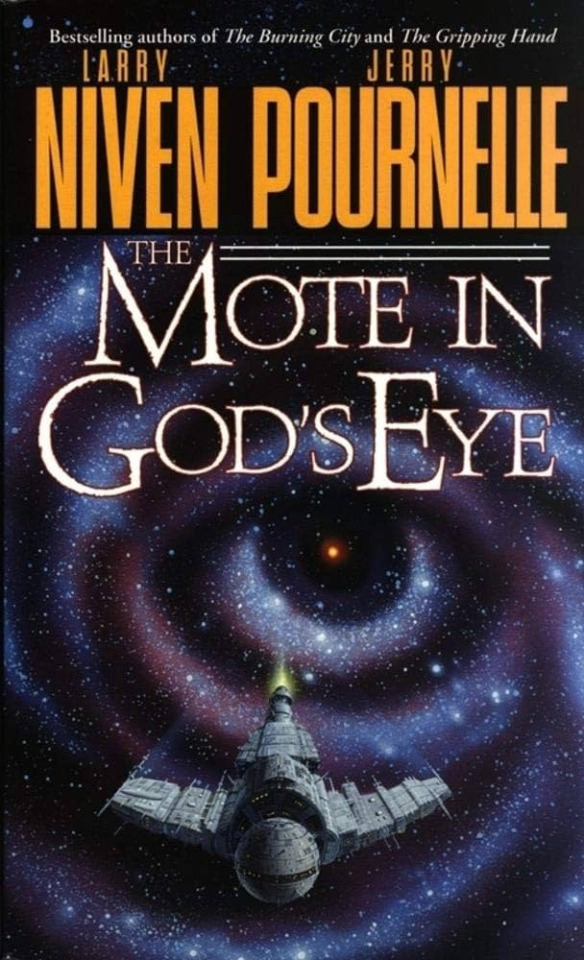


Utopian interplanetary society:
3001: The Final Odyssey
The Culture Series
The Hainish Cycle
Contact

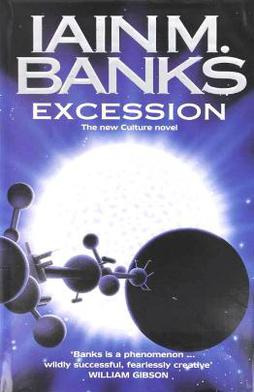

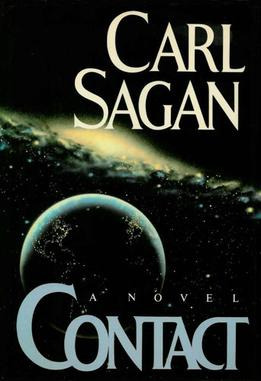
Napoleonic Navy in Space:
Lensman
Legend of the Galactic Heroes
Honor Harrington
John Grimes




#star trek#scifi novel#larry niven#arthur c clarke#jerry pournelle#stanislaw lem#peter watts#iain m banks#ursula k. le guin#carl sagan#ee “doc” smith#yoshiki tanaka#david weber#a bertram chandler#space opera#space exploration#utopianism#military science fiction#Rendezvous With Rama#The Mote in God’s Eye#The Invincible#Blindsight#3001: The Final Odyssey#The Culture Series#The Hainish Cycle#Contact#Lensman#Legend of the Galactic Heroes#Honor Harrington#John Grimes
3 notes
·
View notes
Text
Life is naturally unfair.
Therefore radicals in calling for a "fair" society are actually calling for a government so all-powerful and so omnipresent that it can literally replace nature itself
62 notes
·
View notes
Text
“There has long been a tendency in some intellectual circles to believe that the justice of a cause must be proportional to the lengths that people are willing to go to promote it. Only very desperate people, the argument goes, would do such things; therefore, since they do such things, they must be desperate.
The truth is otherwise. As one of the most efficient genocides in history-that of the Tutsi in Rwanda in 1994-proved, genocide can be fun. People in Rwanda hunted and killed their neighbors and then spent the evenings celebrating, feasting, singing, and dancing. They were happy with their day's work and couldn't wait to resume it. In fact, it was the time of their lives.
Intellectual support in the West for the Soviet Union was at its height when the regime was at its worst. Its atrocities were known and obvious. It was only when the Soviet Union moderated its repression and seemed to have lost the courage of its brutality that support for it in the West waned. Moscow was no longer a model for intellectuals that they deemed worthy of imitation once they had attained power. It had become grey and banal rather than vivid, exciting, and experimentally utopian.”
//Theodore Dalrymple
#violent Utopianism#communism#intellectuals#Theodore Dalrymple#human nature#desperate people#Tutsi#self justified#history#genocide#rwanda#causes#Soviet Union#utopianism
12 notes
·
View notes
Text
#woke#virtue signal#virtue signalling#utopian#Utopianism#hypocrisy#culture#social cohesion#fantasy#spending other people’s money#morality#economics#globalism#globalisation#nation state#reality#mass migration#democracy
6 notes
·
View notes
Quote
if we are not to indulge in utopianism, we must not think that having overthrown capitalism people will at once learn to work for society without any rules of law. Besides, the abolition of capitalism does not immediately create the economic prerequisites for such a change
Vladimir Lenin, The State and Revolution
#leninism#socialism#class struggle#anarchy#vladimir lenin#lenin#vilen#the state and revolution#1917#lenin 1917#state and revolution#utopianism#human nature#essentialism#russian communism#bolshevism
20 notes
·
View notes
Text
Oh me … I’m a b it of a dreamer… a utopian… I think big you know… I look at the world, and I think about What if Cars had Proximity chat, utilizing the Car Phone - but only in the backseats, such that it could not distract the driver…. Yea I guess the F B I probably put me on their list ha ha , yeap
#utopianism#optimist#feds so mad at me and my cool idea#Frutiger aero politics#what if#dare to dream#not politics#queued post#just testing the queue function#posts I wrote in a hot car
2 notes
·
View notes